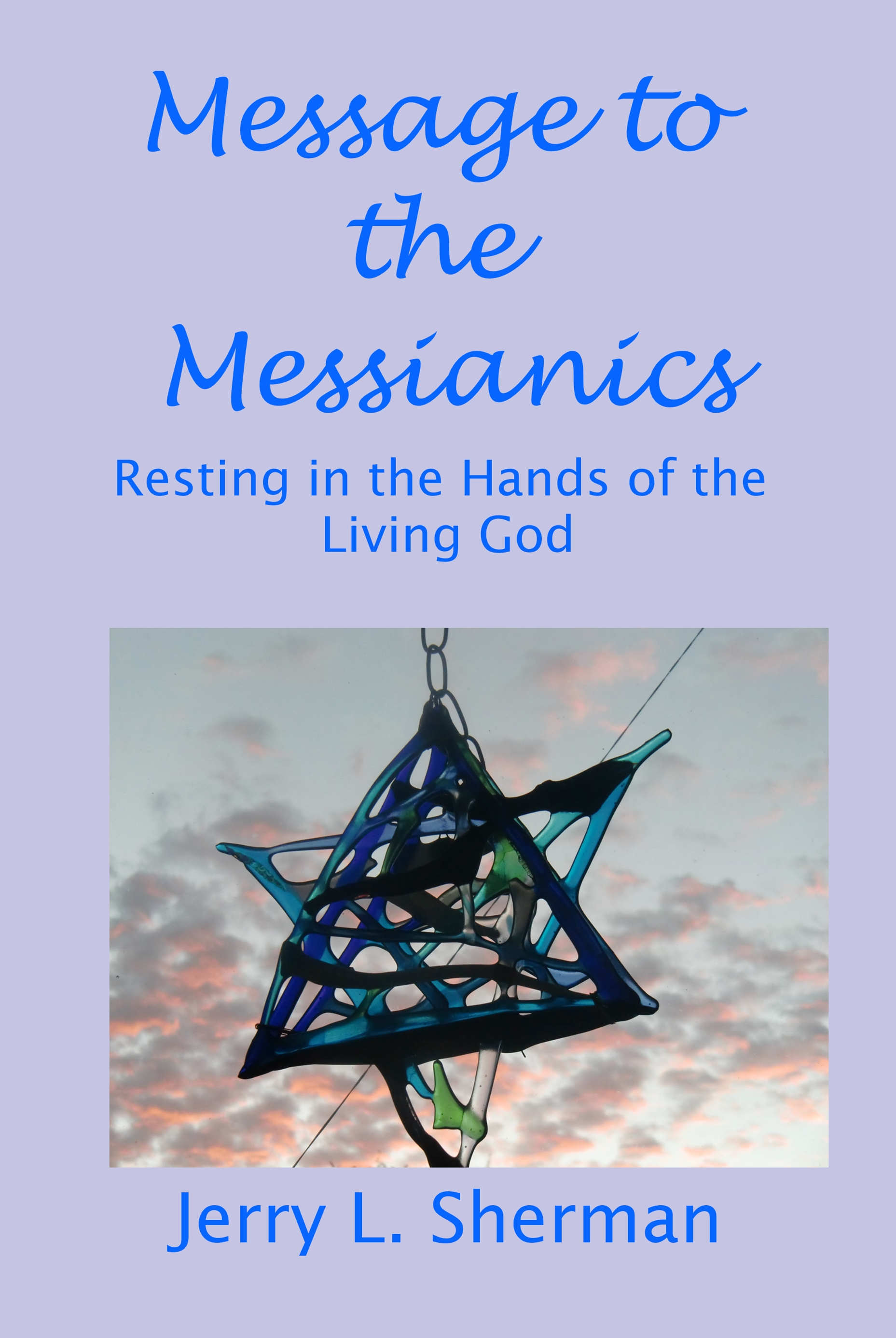Message
to the Messianics . . .
What is the Letter to the Hebrews saying about Jews who believe in Messiah and their relationship to Torah?
What is this warning about the failure to "Enter Rest"?
Could a believer get this wrong and lose salvation?
You are invited to explore the full meaning of keeping the Sabbath, which is Spiritual Rest
--- trusting the LORD alone for perfect acceptance and the power to
live a holy life, abandoning guilt and pride and religious self-effort.
Keeping the Sabbath in this way is revival for every kind of Christian
fellowship, and it can be the life message of Messianic Judaism.
In Part One, “The Movement
and the Message,” I introduce the “security” problem in
Hebrews and its simple but far-reaching solution: this is judgment, not
condemnation---falling into
His hands, not out of
them. Then I introduce the Messianic movement and its concerns
about Judaism being “replaced,” and the tension between salvation by
grace and allegiance to Torah. I reaffirm mainline Messianic Judaism's
views of salvation and the call in
liberty to worship in a Jewish
way. I don't resolve all the details, just clear a
space where we can know Who We Are and consider what G_d has for us as
a movement.
Part Two, “In Many and Various Ways,”
finds in the Tanakh a long string of convicting
stories that show the impotence of the flesh and the sinfulness of
our
misplaced trust in our own strengths. I believe the Messianic movement
can fulfill its identity by preaching and living the Sabbath—not as
religious ritual but as spiritual rest. To see how little we can do and
how sufficiently He has already solved the problem is to walk in the
Spirit and be in revival. 
Once we see clearly and deeply how the LORD dislikes
human pride and
self-effort and asks us to rest in His provision, we are ready for
Part
Three, “By a Son.” Now
we can read Hebrews differently. The fear of
losing salvation gives way to the conviction that we offend G_d
and incur judgment in even thinking that we could lose what we did
not earn. And we see the sin of not entering rest, hanging on to the
false hopes of human religion, whether Jewish or Catholic or
Protestant, or even secular and humanistic. Nothing in Hebrews
prohibits the continuation of Jewish practices, but it measures the
attitude of the heart in religious practices of many kinds.
We will also encounter the
inverse evil twin of legalism,
antinomianism, in which Christians have contempt for Jewish
religion
while practicing their own elitist variety of legalism. They
pride themselves on their “superior understanding.” Such lawlessness is
legalistic, and legalism is lawless, since Torah does not teach us to
trust ourselves. In the places where you and I worship, I worry
most about subtle underpinnings of these errors, which keep us from
breaking forth in holiness and revival. But Hebrews calls us into a transforming, face-to-face
encounter with G_d.
http://thebp.site/183446
Shortcut to
TheBookPatch.com for a printed book or Pdf file.
amazon.com/author/jerrylsherman Shortcut to Amazon author page for Jerry L. Sherman
http://richstonemessages.org
Link to the web pages of Richstone Messages LLC
https://richstonemessages.org/MessageMessianicsPreview.pdf Pdf of book preview (similar to this web page)
